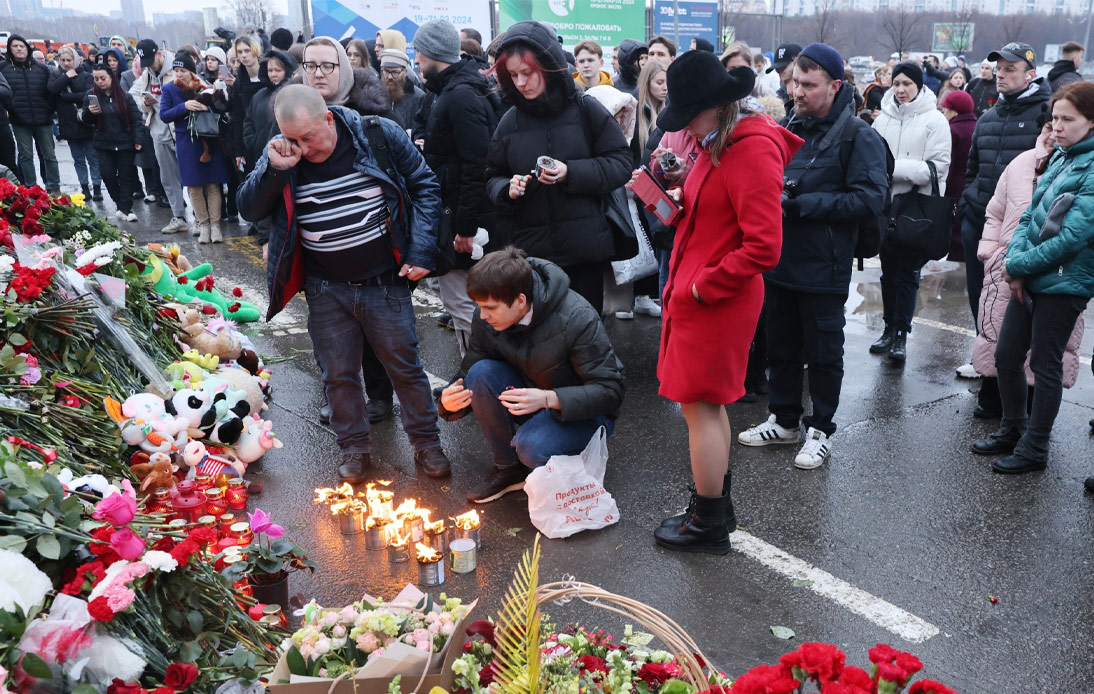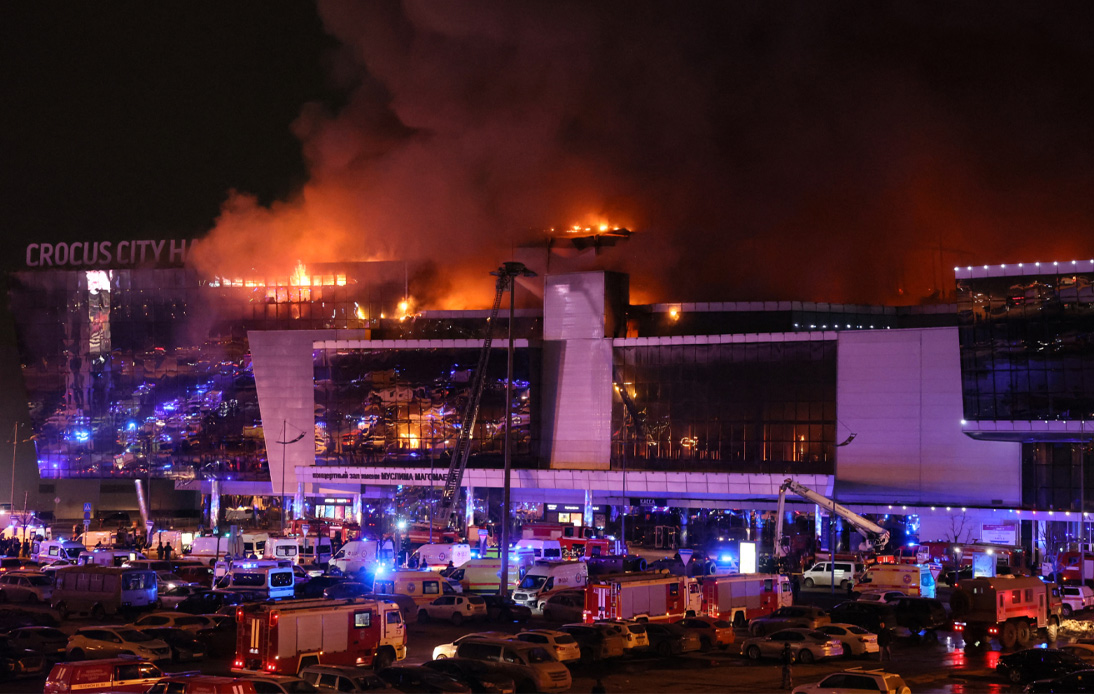
Russia is in a state of mourning following a devastating attack at a crowded concert venue in Moscow on Friday evening, claiming the lives of at least 133 individuals.
Flags are flying at half-mast, numerous events have been postponed, and television networks have altered their programming in response.
The tragedy deepened when over 140 attendees were wounded as attackers stormed the Crocus City Hall, unleashing gunfire randomly and subsequently igniting a fire. The Islamic State (IS) has declared responsibility for this violent act.
Amaq, the media wing of IS, shared a photo on Saturday showcasing four masked individuals it alleges were responsible for the deadly incident. The Russian government has yet to respond to IS’s assertion.
Subsequently, the group published highly graphic footage of the attack. This footage captures a scene where a shooter is seen targeting multiple individuals.
President Vladimir Putin of Russia confirmed the arrest of all four attackers involved in the incident.
During his televised speech on Saturday, Mr. Putin vehemently criticized the massacre, the most severe in Russia in almost two decades, labeling it a “barbaric act of terrorism.”
He reiterated previous claims made by Russian security agencies that the perpetrators had attempted to flee to Ukraine.
Ukraine refuted any involvement in the attack, labeling such claims as “absurd.”
“To suggest the suspects were heading to Ukraine would suggest they were either stupid or suicidal,” said Andriy Yusov, a spokesperson for the Ukrainian military intelligence directorate.
President Volodymyr Zelensky of Ukraine criticized Putin for attempting to attribute the attack to Ukraine. Zelensky censured Putin for his initial silence post-attack, accusing him of trying to fabricate a connection to Ukraine.
The US National Security Council disclosed it had previously warned Russia about a potential IS threat targeting large gatherings in Moscow, which the Kremlin dismissed as “propaganda” aimed at interfering with the Russian electoral process.
Following the attack, the White House issued a condemnation, denouncing the attack as “heinous” and emphasizing the need to defeat IS.
Initial reports of the assault at the Crocus City Hall, located in the Krasnogorsk district of Moscow, emerged on Friday evening.
As many as 6,200 individuals had come together for a rock concert by the renowned band Picnic on Friday night when gunfire erupted.
A video that surfaced online captured a group of men moving through the concourse, unleashing gunfire on the crowd before reloading and making their way into the hall.
Videos depicted people screaming and scrambling for safety as the assailants entered. Some were observed seeking protection behind their seats while gunfire resonated through the auditorium.
A number of concertgoers, in an attempt to escape the shooters, are believed to have sought refuge either in the basement or on the roof.
From a balcony vantage point, a spectator named Vitaly witnessed the chaos unfold. He described the attackers hurling petrol bombs, leading to the outbreak of fire.
Enormous clouds of smoke rose into the air outside the venue, with later observations showing flames consuming the roof and facade of the hall. Reports from Tass state news agency indicated that roughly a third of the structure was ablaze.
Additional accounts mentioned explosions that were powerful enough to break the glass on the building’s upper two levels.
Special forces teams moved in on the location, accompanied by medical staff and a fleet of ambulances. Helicopters flew overhead, attempting to extinguish the flames.
According to the Russian Investigative Committee, the assailants had used a flammable substance to ignite parts of the concert hall, leading to fatalities due to both gunshot injuries and inhalation of toxic fumes from the fire.
By Saturday, a temporary memorial had been erected outside the concert hall, with residents of Moscow lighting candles and placing flowers in tribute. Some lined up to donate blood to support the survivors of the tragic event.
Throughout Moscow and other cities, digital signs featured a solitary lit candle alongside the word “Skorbim” – translating to “we mourn.”





















